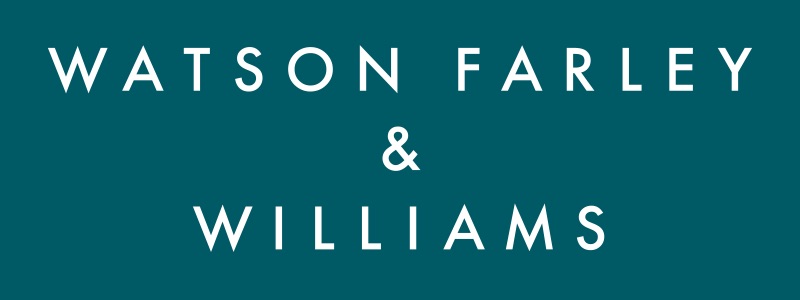Posted on: 6 August 2020
Watson Farley & Williams’ Michael Savva, Finance Partner and Dubai Office Head, Partner Andrew Baird and Paralegal Alice Atkinson discuss a recent Resolution issued by the UAE Cabinet that sets out the possibility for maritime businesses in the UAE to be fully-owned by foreign investors.
In March 2020, the UAE Cabinet issued Resolution No. 16 of 2020 Concerning the Determination of the Positive List of Economic Sectors and Activities Eligible for Foreign Direct Investment and Percentage of their Ownership (the “Resolution”), which says: “To date, onshore UAE companies required a local majority shareholder. Subject to certain conditions specified in the Resolution, this stipulation no longer applies to activities on the “Positive List” which are set out in the Resolution.”
The Resolution set out, amongst other things, the possibility for maritime businesses in the UAE to be fully-owned by foreign investors.
To date, onshore UAE companies required a local (i.e. UAE national or company) majority shareholder. Subject to certain conditions specified in the Resolution (i.e. some minimum share capital requirements in certain sectors), this stipulation no longer applies to activities on the “Positive List” which are set out in the Resolution.
While foreign ownership of maritime businesses is currently possible within some of the UAE’s free zones, such as the Dubai International Financial Centre and the Abu Dhabi Global Market, the Resolution represents a significant development in relation to the foreign ownership of maritime businesses incorporated onshore in the UAE.
THE UAE’S STATUS AS A “MARITIME HUB”
The UAE enjoys an internationally recognised reputation as a logistics and maritime hub.
Dubai, in particular, has charted an impressive course in this area with the establishment of critical port facilities like those at Jebel Ali Port and the Dubai Dry Docks and of other initiatives dedicated to supporting the maritime industry, such as the Dubai Maritime City Authority and the Emirates Maritime Arbitration Centre, which provides alternative dispute resolution services specific to maritime agreements and disputes.
The possibility for foreign ownership of onshore maritime businesses is therefore a logical and welcome step in the development of the UAE as an international shipping centre.
THE POSITIVE LIST RESOLUTION
The groundwork for the changes introduced by the Resolution were set out in previous federal laws, notably:
Federal Decree Law No. 18 of 2017, which amended the 2015 Commercial Companies Law to give ministers the flexibility to permit increased levels of foreign ownership in certain sectors of the economy; and
Federal Law No. 19 of 2018 (the “Foreign Direct Investment Law” or “FDI Law”) which put in place the framework for foreign investors to apply to own more than 49%, and up to 100%, of the share capital of UAE onshore companies, as a precursor to the Positive List Resolution. The FDI Law set out two lists comprising those sectors of the economy that could be opened up to increased foreign ownership versus those that could not, the so-called “Positive” and “Negative” lists, both of which are open to amendment.
Whilst specifying certain sectors of the economy not open to increased foreign investment (i.e. banking and financing activities, water and electricity services, exploration and production of petroleum materials), the FDI Law did not expand on the activities to be allowed under the Positive List. Those “positive” activities were instead set out in the Positive List Resolution, which was published in the UAE Official Gazette on 31 March 2020.
The Resolution cites 122 economic activities which, subject to the satisfaction of certain criteria, are open to increased foreign ownership; they include various businesses in the agriculture, construction, manufacturing and transportation sectors. The following maritime businesses appear on the Positive List:
The Resolution cites 122 economic activities which, subject to the satisfaction of certain criteria, are open to increased foreign ownership; they include various businesses in the agriculture, construction, manufacturing and transportation sectors. The following maritime businesses appear on the Positive List:
(a) Sea and coastal freight water transport;
(b) Internal water transportation of goods;
(c) Commercial ships rental;
(d) Ship piloting and towing; and
(e) Marine towing of boats and jet skis.
There are no minimum capital requirements for foreign investment in these types of business. According to the Resolution, the FDI requirements and conditions relevant to these businesses are to be understood by reference to “the legislation in force“. Fully understanding what exactly this means requires referring back to the 2015 Commercial Companies Law¹ and to “any other restrictions and conditions set by the licensing authority and any restrictions and conditions set by the legislation in force“². It would appear that each Emirate will ultimately have the final say on the percentage of foreign ownership in respect of each type of business on the Positive List.
THE NEW MARITIME BILL
In addition to the changes heralded by the Resolution, a new federal maritime law, the New Maritime Bill (“the Bill”), is in the process of being drafted. Intended to amend the 1981 Maritime Code, it is currently under review by the Federal Transport Authority – Land and Maritime, and is expected to become law later this year.
Follow this link to read the article in full.




